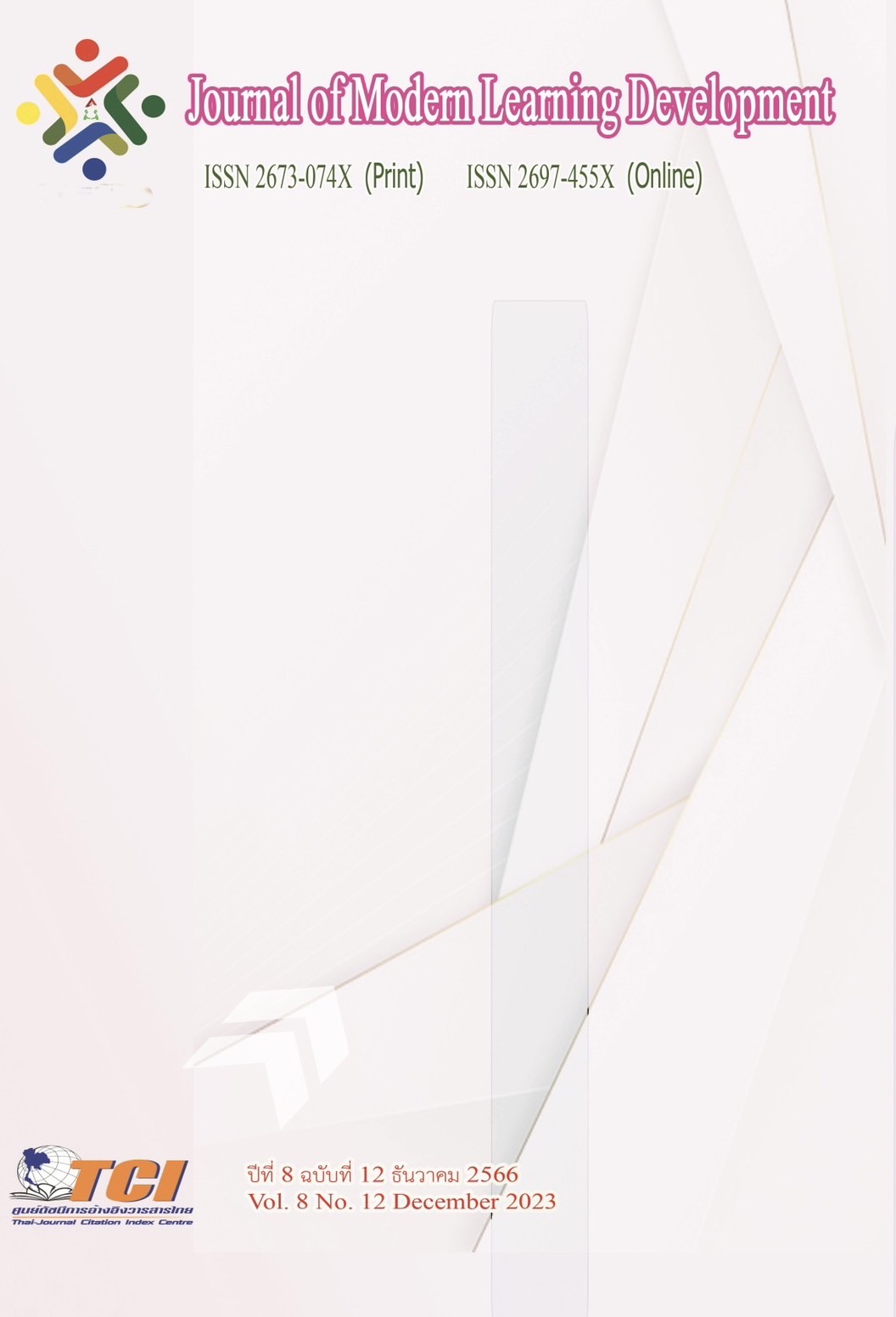International Students’s Soft Skills in Music Graduate Program
Main Article Content
Abstract
The study aimed to study how to develop soft skills in education management for international students in the music graduate program. This study used the quantitative research method, which collected data by questionnaire. The population was 600 Chinese students studying in the graduate music program in Thailand during the years 2020-2023. The sample was 222 students selected by using the convenience sampling method. The research tool was the soft skills self-evaluation questionnaire, which included six skills: problem-solving and creativity, readiness to learn/critical thinking, adaptability, self-motivation/positive attitude, communication, and teamwork. The results were analyzed by using descriptive statistical analysis.
The research findings found that the main respondents were doctoral students in music majors (66.40%). 43.08% of the graduate students had more than 10-year work experience. In problem-solving and creativity skills, over half of the students strongly agree that they understand a situation, take into account the context (54.05%), and can analyze a problem, visualizing what could be the best and worst possible scenarios (52.70%). 40% of the students mostly agree that they had the readiness to learn, critical thinking skills, and adaptability skills. 62.16% of graduate students have confidence in their long-term vision of what they want. The trend of self-motivation/positive attitude skills is quite high. However, 56.76% had less confidence in dealing with their stress. Communication skills were the lowest skills in the self-evaluation score. In contrast, teamwork skills were the highest skills in students’ self-evaluation. As an important skill of today's employment, the research findings could apply to the professional development program for graduate students to enhance their future work abilities. Moreover, the administrators of the graduate program in music could apply the findings in providing opportunities to develop soft skills, which less confidence in the international student who attend the program.
Article Details
References
Haans, R., & Constant, P. (2016). Thinking about U: Theorizing and testing U‐and
inverted U‐shaped relationships in strategy research. Strategic Management
Journal. 37 (7), 1177-1195.
Jampaklaya, A., Penboona, B., & Lucktong, A. (2022). Internationalization of higher education in Thailand: Promises and reality. Kasetsart Journal of Social Sciences. 43, 183-193.
Kah, L. C., & Youyan, N. (2016). International Students’ Motivation and Learning Approach: A Comparison with Local Students. Journal of International Students, 6(3), 678-699.
Kuo, Y. (2011). Language Challenges Faced by International Graduate Students in the United States. Journal of International Students. 1 (2), 38-42.
Panapinun, S., & Phensit, T. (2021). Soft Skills that are essential for music students Suan Sunandha Rajabhat University. Art Pritas Journal. 9 (2), 108-112.
Warrner, J. (2020). Integrating Soft Skills into an Academic Curriculum. American Association for Adult and Continuing Education Inaugural 2020 Conference Proceedings (pp.247-250). American Association for Adult and Continuing Education.
Yoon, S., & Kim, H. C. (2018). Feeling economically stuck: The effect of perceived
economic mobility and socioeconomic status on variety seeking. Journal of
Consumer Research. 44 (5), 1141–1156. https://doi.org/10.1093/jcr/ucx091


